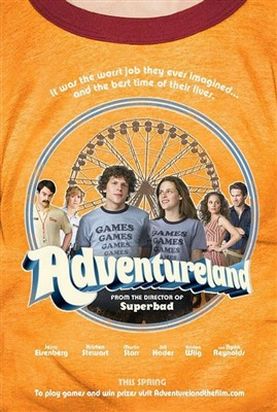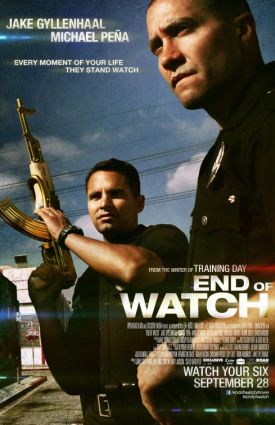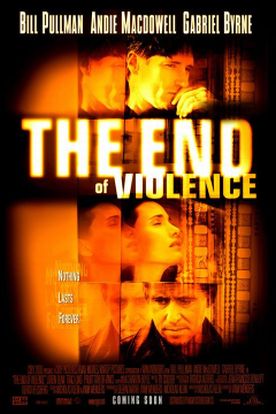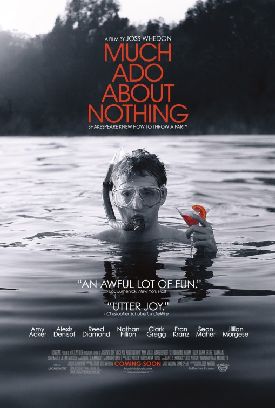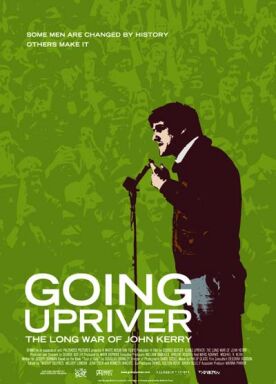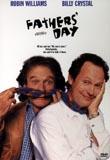Adventureland
Greg Mottola’s Adventureland ought to be taken together with I Love You, Man, reviewed in this space a few days ago. Both are guy movies about what it means to grow up and be a man, but they come to opposite conclusions. I Love You, Man subscribes to the common pop cultural view that ideas of manhood as something to be aspired to by adolescents who have already been admitted to all the ordinary amusements of adulthood are quaint survivals at best and evidence of some kind of psychopathology at worst. Its hero had nothing to learn but that, with enough circumspection, a guy can have it all, including even marriage, without ever attaining an appreciable amount of maturity more than he possessed at 17. Adventureland, by contrast, at least takes seriously — though with a certain ambiguity — the old-fashioned view that there is or ought to be a crossing of the bar from childish things to responsible adulthood, and that this crossing it is at least desirable and perhaps necessary for a man to make, if he is to be a man and not an overgrown teenager.
This grownupness, you may be thinking, was not exactly promised by Mr Mottola’s previous film, Superbad, which lived almost entirely in that adolescent world whose inability to look beyond itself and its desires, except in terms of fantasy, is a species of narcissism. Yet there were also moments of detachment and satire in Superbad which to some extent redeemed the film. They could be taken, at any rate, as earnest of better things to come — things like the thoughtfulness and understated comedy of his first film, The Daytrippers of a dozen years ago which, like Adventureland, he wrote as well as directed. The new film’s setting — Pittsburgh, 1987 — and the relatively advanced age of his virginal hero, who is a recent college graduate, not a high school student, also might have suggested a new seriousness of purpose.
If so, he has left us a reminder of the Superbad — or I Love You, Man — species of arrested development in the character of Tommy Frigo (Matt Bush), a high school friend of his boy-man hero, Jim Brennan (Jesse Eisenberg). Tommy’s development appears to have been arrested not at 17 but somewhere nearer 12, and his customary greeting to Jim on meeting is a punch in the gonads. He’s the movie’s memento mori, always present before the eyes of our hero to remind him of the fate lying in store for those who say to adolescence, “Stay, thou art so fair.” Somehow, it’s not surprising to me to find on the IMDB message boards for this movie one devoted to the Frigo fan base. “He was the only GOOD thing about this movie, I think!” wrote one of the Frigoites. There speaks the voice of the popular culture Mr Mottola is, at least to some extent, reacting against.
It’s also remarkable that the principal way in which Jim has learned to stand out against the merely hedonistic values of that culture is an instinctive sense of gallantry towards women. So far as we can see, he has not been “raised that way,” since his father (Jack Gilpin) is an alcoholic and his mother (Wendie Malick) has shrewish tendencies and neither is obviously a stickler for manners or traditional ideas of sex roles. Perhaps he has got his notion of proper behavior out of the old books he has been reading as a literature major at Oberlin, unlikely as that seems, even in 1987. Now, he is on his way to journalism school at Columbia by way of a summer spent in Europe when suddenly he learns that, owing to business reverses probably connected with his drinking problem, dad can no longer pay, either for the vacation or for grad school. Jim has to give up the one and get a summer job at a down-market amusement park near his home in Pittsburgh to make enough money for the other.
There is a certain amount of Superbad-style comedy, only not so uproarious, in the grotesques that run or hang out at the seedy amusement park, though Jim makes one good friend in Joel (Martin Starr), a would-be intellectual like himself who affects a tobacco pipe — and who admits that it is an affectation — and he soon finds himself falling in love with Emily (Kristen Stewart). Warned against telling any girl he likes that he is still a virgin, Jim can’t resist telling her of his college relationship with a girl named Betsy, with whom he broke up after reading Shakespeare’s sonnet number 57 (“Being your slave, what should I do but tend/Upon the hours and times of your desire?”) and realizing that he didn’t want to be her slave or tend upon the hours and times of her desire.
That’s quite a sophisticated joke in itself, and it’s compounded by his noticing the irony of the fact that the hour and time of her desire finally came round to him just as he realized this. “And you didn’t just f*** her anyway?” asks Emily, incredulously. She herself has a tangled sexual history which accounts for most of the film’s narrative momentum, such as it is, and which contributes to the irony of her remark. We are made to see at once in this forlorn survival of a scrap of gentlemanliness in a world otherwise without standards except, sometimes, those of personal loyalty a form of youthful naiveté — but one rather to be grown into rather than out of. I also like the idea, hinted at rather than insisted upon, that growing out of J-school may also be a mark of maturity and manhood. But these two promising sprouts, like the hairs upon his chin, are not by themselves quite enough to make a man of Jim, and Mr Mottola is mostly content to honor him for being gentle rather than being a gentleman. It’s a start, I guess.
Discover more from James Bowman
Subscribe to get the latest posts to your email.

